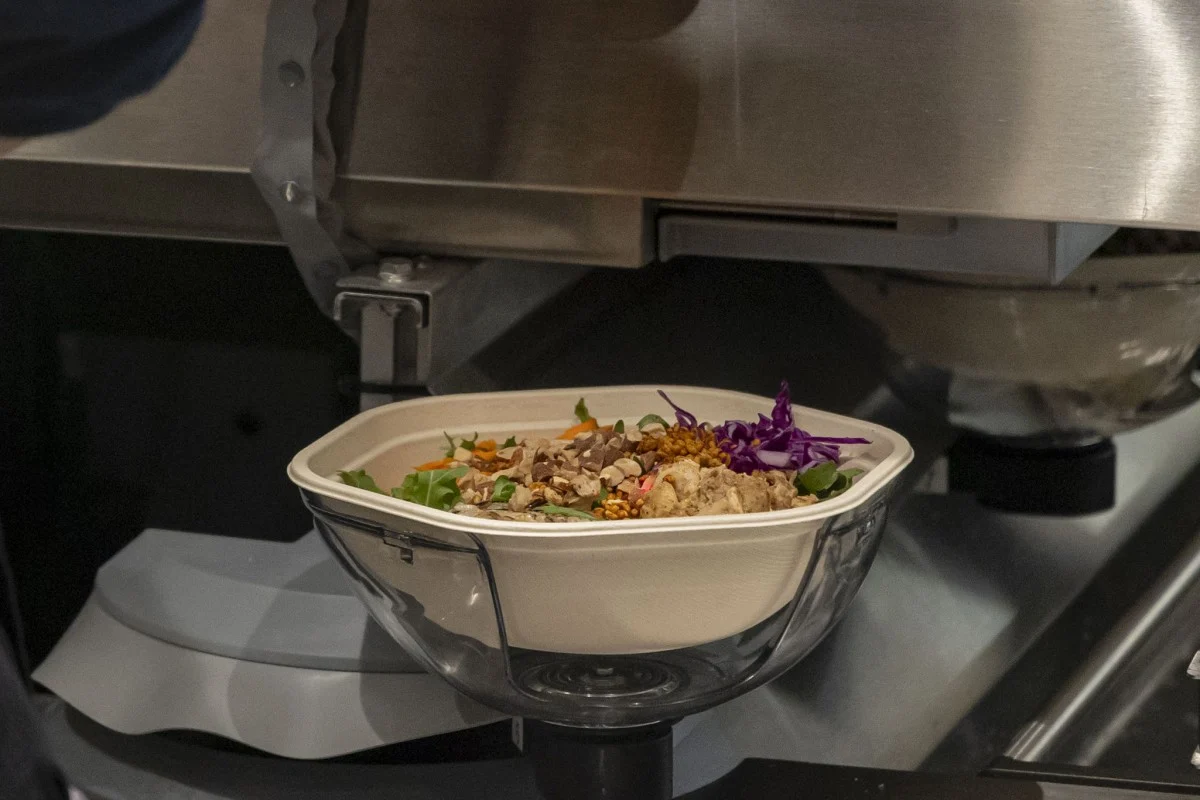Sweetgreen, a California-based restaurant chain, has unveiled its latest innovation, the Infinite Kitchen, at its Willis Tower location in Chicago. This automated system revolutionizes the salad-making process by combining speed, precision, and freshness, offering an enhanced dining experience for customers.
The Infinite Kitchen, first introduced in select locations, uses a futuristic assembly line of robotic chefs to craft salads like Kale Caesar and Hummus Crunch with exacting standards. Ingredients are portioned, mixed, and maintained at optimal temperatures, ensuring consistency and quality. While robots handle the preparation, human team members manage machine restocking and finishing touches, such as adding fresh basil or salmon fillets.
Chicago’s Willis Tower restaurant is the first to adopt a hybrid model, operating both traditional and automated salad lines. This approach allows Sweetgreen to refine the Infinite Kitchen system while maintaining the personal touch of human interactions. The automated kitchen also promises increased efficiency, with a seven percent reduction in labor costs reported across participating locations.
Sweetgreen, founded in 2007, has grown into a national chain with 245 locations across the U.S., aiming to redefine fast food with fresh, healthy options. The Infinite Kitchen system is a key part of this vision, combining automation with sustainability. By 2025, Sweetgreen plans to integrate the technology into all new restaurants.
The cost of installing the system, estimated at $450,000–$550,000 per location, is seen as an investment in future savings. Sweetgreen co-founder Nicolas Jammet emphasizes that no employees have been laid off due to automation; instead, staff have been reassigned to customer-focused roles, enhancing hospitality.
Despite lingering challenges like reduced office lunch crowds in post-pandemic Chicago, the Willis Tower location continues to serve thousands of customers daily. The Infinite Kitchen aims to handle peak-hour demand more effectively, speeding up service while maintaining high-quality meals.
As Sweetgreen looks to scale up this technology, it’s paving the way for a collaborative future between humans and machines, aiming to “reimagine the fast food experience.” Robots deliver speed and precision, while humans focus on providing a friendly, welcoming environment.
READ MORE:
